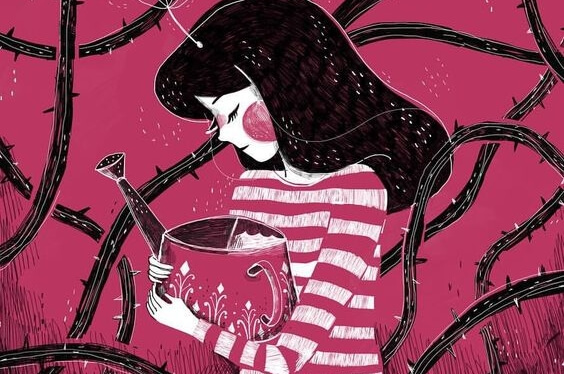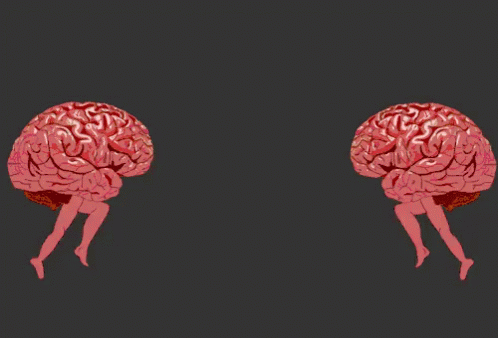Some Attitudes Are More Distancing than Distance Itself


Written and verified by the psychologist Valeria Sabater
Some attitudes keep people apart even more than an entire frigid ocean. It doesn’t matter if it’s the attitude of a family member we live with or the coworker we see every day.
Their rigid perspectives, inflexible ideas, and unmoving beliefs build emotional walls and traps that are very negative.
As we often say, the important thing in our social and romantic relationships — even more important than words — is our attitudes. There are few things as basic yet interesting in psychology as what makes up people’s attitudes.
As Louis Leon Thurstone spoke about during his time, our attitudes are like a chaotic amalgamation of our biases, preconceived ideas, fears, evaluations, and tendencies of a happier life. Or on the contrary, an existential complex where a person sees more conflicts than opportunities in their daily life.
In fact, here’s something we see every day. There are always certain people who, through their attitudes and their subsequent ways of thinking and acting, either greatly help or greatly hinder our ability to live together.
Certain psychological tendencies are expressed in social contexts and no one is immune to them. On top of that, sometimes these tendencies can sow seeds of discontent that grow into all-out conflict.

Different types of attitudes we should know about
Viktor E. Frankl once said that “Everything can be taken from a man but one thing: the last of the human freedoms—to choose one’s attitude in any given set of circumstances, to choose one’s way”.
From this, we can conclude that there are few tools as foundational and effective as using our attitudes wisely.
However, with that in mind, we should focus on being constructive, flexible, and healthy to better survive this complex and sometimes contradictory world.
It’s important to know that attitudes are learned. In our childhood, we “absorb”, often without noticing it, many of our values, interpretations, and beliefs from our family.
Nevertheless, there usually comes a time when we try to change. We start to do this because of our new experiences or because interactions in various social environments or the media make us reevaluate the ideas we’ve been taught.
We should understand that our attitudes are not stable and fixed in time. For the most part, we can change and better our attitude, which is wonderful because it means that we are continuously growing and changing.
Attitudes: the good, the bad, and the ugly
We said it already. Attitudes can sometimes become the source of conflict and distance between people. And it can be almost insurmountable.
That’s because sometimes people have defensive attitudes, while others are very resistant to change and base their interactions on prejudice. Some, of course, live in a world based only on their narcissism and selfishness.
Now, let’s look at what kinds of attitudes we may see in our day-to-day lives:
- Generous or peaceful attitudes. These are the most positive attitudes and those that best facilitate coexistence. It’s based on availability, open-mindedness, acceptance, and love. A person always seeks mutual benefit.
- Manipulative attitudes. In these cases, we see the typical person who seeks only one thing: personal benefit. Every behavior and every word will have the underlying purpose of deceiving to achieve that goal.
- Self-interested attitudes. Some people have deficiencies or certain needs. For that reason, every one of their actions will have the intention of filling those needs. And they often do it by calling attention to themselves or making themselves the victim.
- Aggressive attitude. These are people who like to draw lines between themselves and others, letting their prejudices guide them. They display often aggressive beliefs that cause problems.

Four attitudes we need to be happier
Positive psychology reminds us that happiness depends on various factors. One of these is nature, another is nurture (nurture meaning our social context, education, work, relationships, health…), and last of all, the most relevant, is of course our attitudes.
The most interesting thing here is that, like how your attitudes can change, you can train yourself and work daily to live with others better. You can work on the perspective you need for true well-being.
So here’s something to think about. Let’s get to know which attitudes we should integrate into our daily lives to start to see change. They are:
- Get a more positive perspective on the behavior of the people around you. Understand that others cannot always act how you want. For that reason, we should accept them just as they are, and focus more on how we can better ourselves.
- Create a more positive vision of the future and what will happen. Try to trust yourself and what tomorrow holds for you.
- Stop obsessing about what you need to be happy. Often, what you’re missing is inside you.
- Develop stronger self-confidence. Make yourself the protagonist of your life, since you are ultimately the person responsible for your happiness.

In conclusion, we’ve seen how the study of attitudes is as broad as it is rewarding.
While it’s true that sometimes it can be incredibly difficult to live with people with hostile or complicated attitudes, the key is to protect your own.
Because in the end, it’s our attitudes that make us great. They help us to reach happiness.
Some attitudes keep people apart even more than an entire frigid ocean. It doesn’t matter if it’s the attitude of a family member we live with or the coworker we see every day.
Their rigid perspectives, inflexible ideas, and unmoving beliefs build emotional walls and traps that are very negative.
As we often say, the important thing in our social and romantic relationships — even more important than words — is our attitudes. There are few things as basic yet interesting in psychology as what makes up people’s attitudes.
As Louis Leon Thurstone spoke about during his time, our attitudes are like a chaotic amalgamation of our biases, preconceived ideas, fears, evaluations, and tendencies of a happier life. Or on the contrary, an existential complex where a person sees more conflicts than opportunities in their daily life.
In fact, here’s something we see every day. There are always certain people who, through their attitudes and their subsequent ways of thinking and acting, either greatly help or greatly hinder our ability to live together.
Certain psychological tendencies are expressed in social contexts and no one is immune to them. On top of that, sometimes these tendencies can sow seeds of discontent that grow into all-out conflict.

Different types of attitudes we should know about
Viktor E. Frankl once said that “Everything can be taken from a man but one thing: the last of the human freedoms—to choose one’s attitude in any given set of circumstances, to choose one’s way”.
From this, we can conclude that there are few tools as foundational and effective as using our attitudes wisely.
However, with that in mind, we should focus on being constructive, flexible, and healthy to better survive this complex and sometimes contradictory world.
It’s important to know that attitudes are learned. In our childhood, we “absorb”, often without noticing it, many of our values, interpretations, and beliefs from our family.
Nevertheless, there usually comes a time when we try to change. We start to do this because of our new experiences or because interactions in various social environments or the media make us reevaluate the ideas we’ve been taught.
We should understand that our attitudes are not stable and fixed in time. For the most part, we can change and better our attitude, which is wonderful because it means that we are continuously growing and changing.
Attitudes: the good, the bad, and the ugly
We said it already. Attitudes can sometimes become the source of conflict and distance between people. And it can be almost insurmountable.
That’s because sometimes people have defensive attitudes, while others are very resistant to change and base their interactions on prejudice. Some, of course, live in a world based only on their narcissism and selfishness.
Now, let’s look at what kinds of attitudes we may see in our day-to-day lives:
- Generous or peaceful attitudes. These are the most positive attitudes and those that best facilitate coexistence. It’s based on availability, open-mindedness, acceptance, and love. A person always seeks mutual benefit.
- Manipulative attitudes. In these cases, we see the typical person who seeks only one thing: personal benefit. Every behavior and every word will have the underlying purpose of deceiving to achieve that goal.
- Self-interested attitudes. Some people have deficiencies or certain needs. For that reason, every one of their actions will have the intention of filling those needs. And they often do it by calling attention to themselves or making themselves the victim.
- Aggressive attitude. These are people who like to draw lines between themselves and others, letting their prejudices guide them. They display often aggressive beliefs that cause problems.

Four attitudes we need to be happier
Positive psychology reminds us that happiness depends on various factors. One of these is nature, another is nurture (nurture meaning our social context, education, work, relationships, health…), and last of all, the most relevant, is of course our attitudes.
The most interesting thing here is that, like how your attitudes can change, you can train yourself and work daily to live with others better. You can work on the perspective you need for true well-being.
So here’s something to think about. Let’s get to know which attitudes we should integrate into our daily lives to start to see change. They are:
- Get a more positive perspective on the behavior of the people around you. Understand that others cannot always act how you want. For that reason, we should accept them just as they are, and focus more on how we can better ourselves.
- Create a more positive vision of the future and what will happen. Try to trust yourself and what tomorrow holds for you.
- Stop obsessing about what you need to be happy. Often, what you’re missing is inside you.
- Develop stronger self-confidence. Make yourself the protagonist of your life, since you are ultimately the person responsible for your happiness.

In conclusion, we’ve seen how the study of attitudes is as broad as it is rewarding.
While it’s true that sometimes it can be incredibly difficult to live with people with hostile or complicated attitudes, the key is to protect your own.
Because in the end, it’s our attitudes that make us great. They help us to reach happiness.
This text is provided for informational purposes only and does not replace consultation with a professional. If in doubt, consult your specialist.







